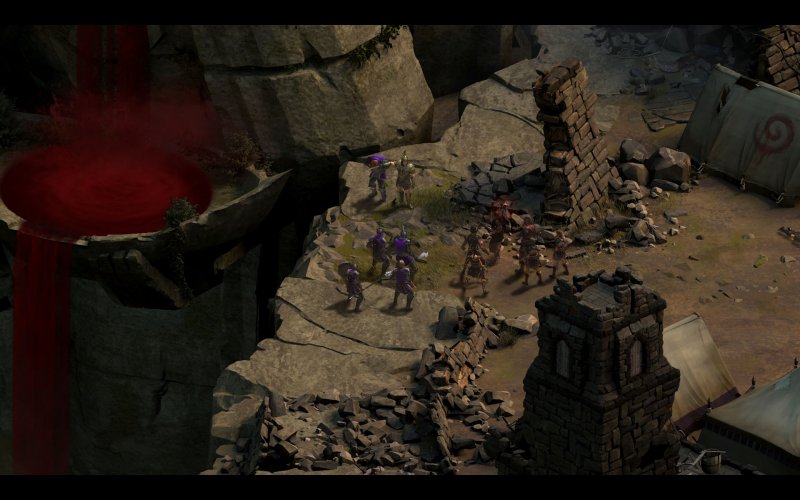Obsidian was on the verge of bankruptcy. A house with roots as large as oak trees well planted in the terrain of role-playing games had reached the critical point, due to projects hastily completed and badly completed, failed titles overwhelmed and flights fading into tragedy after a front with the harsh wall of reality . Then, suddenly, the rebirth. Not the work of the (few) remarkable video games out of the dark period of the software house, but of a simple return to the past named Pillars of Eternity.
In an era where the action and the spectacularity have eaten almost everything, the answer was only one: give back to the fans of the genre the essence of role-playing games. Choosing to follow this abandoned road has however placed the software house in front of new dilemmas, all related to its future. How to move once reclaimed the niche of the GDR veterans?
How to stay at the top when so many studies of development just as willing have now sniffed the economic potential of the thing? Tyranny is the answer, a new title that owes a lot to the glorious Baldur’s Gate and company, but refreshes everything with a good dose of malice.
If life can teach something, that something is that “evil always wins”: Tyranny’s review!
POWER IS ORDER. MAYBE
Tyranny does not try to eradicate the bases posed by the predecessors in the genre or at least does not try to do so from the point of view of the gameplay. The Obsidian have in fact chosen to scatter the cards on the table only with regard to the narrative, which rests on an incipit to say the least unusual.
In this title do not take the role of the hero on duty, but is interpreted one of the subordinates of a powerful ruler known as Kyros, committed to impose the edicts of his master on the few regions still populated by those who have not subjected to his want.
These edicts, however, are not mere laws but true mystical proclamations, capable of devastating entire populations instantly. It may seem like a sparse premise, and yet the Obsidians have frayed and elaborated it out of shape, creating a strange fantasy world where the classic races are almost gone (outside of the beast men here there are only tribes and human factions) and the territory Kyros is controlled by the vigilant eye of the Archons, individuals of rare power who have sworn loyalty to the dark lord.
The end result is a web of alliances, malcontents and unstable balances that are up to the player to chop and readjust according to their will, with permanent results on the entire gaming world.
Whether you decide to abandon yourself to the most brutal violence or to minutely apply the law to favor your lord makes no difference: you are not Luke Skywalker here, you are Darth Vader; your actions will inevitably lead to some large-scale tragedy and the most you can do is choose the lesser evil. Too bad that these gears full of potential do not fit perfectly into the messy tangle of ramifications of the game, thus creating the obvious imbalances in the advanced campaign due to that or that other alliance.
It is impossible not to criticize the closure of the adventure, which leaves a bitterish aftertaste unfortunately perceived in more than one Obsidian title in the past: that of hasty cutting. In practice, the house does not seem to have lost the vice of ”

